Nigeria’s president has scolded Western diplomats for their comments about the way the February 25 presidential election is being run, warning against foreign meddling. Countries across Africa are up against Western-backed coup attempts and Western-supported disinformation campaigns. African Stream reports.
Related Articles
Related Articles
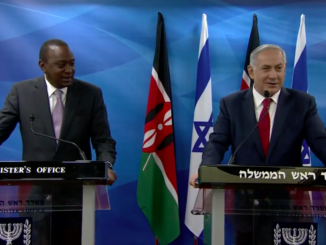
Palestine’s Africa Dichotomy: Is Israel Really ‘Winning’ Africa?
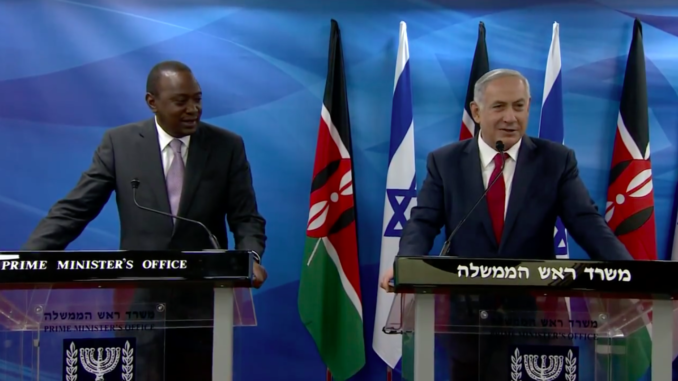
The decision by the African Union Commission, on July 22, to grant Israel observer status membership in the AU was the culmination of years of relentless Israeli efforts aimed at co-opting Africa’s largest political institution. Why is Israel so keen on penetrating Africa? What made African countries finally succumb to Israeli pressure and lobbying?
To answer the above questions, one has to appreciate the new Great Game under way in many parts of the world, especially in Africa, which has always been significant to Israel’s geopolitical designs. Starting in the early 1950s to the mid-70s, Israel’s Africa network was in constant expansion. The 1973 war, however, brought that affinity to an abrupt end.
What Changed Africa
Ghana, in West Africa, officially recognized Israel in 1956, just eight years after Israel was established atop the ruins of historic Palestine. What seemed like an odd decision at the time – considering Africa’s history of western colonialism and anti-colonial struggles—ushered in a new era of African-Israeli relations. By the early 1970s, Israel had established a strong position for itself on the continent. On the eve of the 1973 Israeli-Arab war, Israel had full diplomatic ties with 33 African countries.
“The October War”, however, presented many African countries with a stark choice: siding with Israel – a country born out of Western colonial intrigues – or the Arabs, who are connected to Africa through historical, political, economic, cultural and religious bonds. Most African countries opted for the latter choice. One after the other, African countries began severing their ties with Israel. Soon enough, no African state, other than Malawi, Lesotho and Swaziland, had official diplomatic relations with Israel.
Then, the continent’s solidarity with Palestine went even further. The Organization of African Unity – the precursor to the African Union – in its 12th ordinary session held in Kampala in 1975, became the first international body to recognize, on a large scale, the inherent racism in Israel’s Zionist ideology by adopting Resolution 77 (XII). This very Resolution was cited in the United Nations General Assembly Resolution 3379, adopted in November of that same year, which determined that “Zionism is a form of racism and racial discrimination”. Resolution 3379 remained in effect until it was revoked by the Assembly under intense U.S. pressure in 1991.
Since Israel remained committed to that same Zionist, racist ideology of yesteryears, the only rational conclusion is that it was Africa, not Israel, that changed. But why?
First, the collapse of the Soviet Union. That seismic event resulted in the subsequent isolation of pro-Soviet African countries which, for years, stood as the vanguard against U.S., Western and, by extension, Israeli expansionism and interests on the continent.
Second, the collapse of the unified Arab front on Palestine. That front has historically served as the moral and political frame of reference for the pro-Palestine, anti-Israel sentiments in Africa. This started with the Egyptian government’s signing of the Camp David Agreement, in 1978-79 and, later, the Oslo Accords between the Palestinian leadership and Israel, in 1993.
Covert and overt normalization between Arab countries and Israel continued unabated over the last three decades, resulting in the extension of diplomatic ties between Israel and several Arab countries, including African-Arab countries, like Sudan and Morocco. Other Muslim-majority African countries also joined the normalization efforts. They include Chad, Mali and others.
Third, the ‘scramble for Africa’ was renewed with a vengeance. The neocolonial return to Africa brought back many of the same usual suspects—Western countries, which are, once more, realizing the untapped potential of Africa in terms of markets, cheap labor and resources. A driving force for Western re-involvement in Africa is the rise of China as a global superpower with keen interests in investing in Africa’s dilapidated infrastructure. Whenever economic competition is found, military hardware is sure to follow. Now several Western militaries are openly operating in Africa under various guises—France in Mali and the Sahel region, the United States’ many operations through U.S. Africa Command (AFRICOM), and others.
Tellingly, Washington does not only serve as Israel’s benefactor in Palestine and the Middle East, but worldwide as well, and Israel is willing to go to any length to exploit the massive leverage it holds over the U.S. government. This stifling paradigm, which has been at work in the Middle East region for decades, is also at work throughout Africa. For example, last year the U.S. administration agreed to remove Sudan from the state-sponsored terror list in exchange for Khartoum’s normalization with Israel. In truth, Sudan is not the only country that understands – and is willing to engage in—this kind of ‘pragmatic’—read under-handed—political barter. Others also have learned to play the game well. Indeed, by voting to admit Israel to the AU, some African governments expect a return on their political investment, a return that will be exacted from Washington, not from Tel Aviv.
Unfortunately, albeit expectedly, as Africa’s normalization with Israel grew, Palestine became increasingly a marginal issue on the agendas of many African governments, who are far more invested in realpolitik – or simply remaining on Washington’s good side—than honoring the anti-colonial legacies of their nations.
Netanyahu the Conqueror
However, there was another driving force behind Israel’s decision to ‘return’ to Africa than just political opportunism and economic exploitation. Successive events have made it clear that Washington is retreating from the Middle East and that the region was no longer a top priority for the dwindling U.S. empire. For the United States, China’s decisive moves to assert its power and influence in Asia are largely responsible for the U.S. rethink. The 2012 U.S. withdrawal from Iraq, its ‘leadership from behind’ in Libya, its non-committal policy in Syria, among others, were all indicators pointing to the inescapable fact that Israel could no longer count on the blind and unconditional U.S. support alone. Thus, the constant search for new allies began.
For the first time in decades, Israel began confronting its prolonged isolation at the UNGA. U.S. vetoes at the UN Security Council may have shielded Israel from accountability to its military occupation and war crimes; but U.S. vetoes were hardly enough to give Israel the legitimacy that it has long coveted. In a recent conversation with former UN human rights envoy, Richard Falk, the Princeton Professor Emeritus explained to me that, despite Israel’s ability to escape punishment, it is rapidly losing what he refers to as the ‘legitimacy war’.
Palestine, according to Falk, continues to win that war, one that can only be achieved through real, grassroots global solidarity. It is precisely this factor that explains Israel’s keen interest in transferring the battlefield to Africa and other parts of the Global South.
On July 5, 2016, then Israeli Prime Minister, Benjamin Netanyahu, kick-started Israel’s own ‘scramble for Africa’ with a visit to Kenya, which was described as historic by the Israeli media. Indeed, it was the first visit by an Israeli prime minister in the last 50 years. After spending some time in Nairobi, where he attended the Israel-Kenya Economic Forum alongside hundreds of Israeli and Kenyan business leaders, he moved on to Uganda, where he met leaders from other African countries including South Sudan, Rwanda, Ethiopia and Tanzania. Within the same month, Israel announced the renewal of diplomatic ties between Israel and Guinea.
The new Israeli strategy flowed from there. More high-level visits to Africa and triumphant announcements about new joint economic ventures and investments followed. In June 2017, Netanyahu took part in the Economic Community of West African States (ECOWAS), held in the Liberian capital, Monrovia. There, he went as far as rewriting history.
“Africa and Israel share a natural affinity,” Netanyahu claimed in his speech. “We have, in many ways, similar histories. Your nations toiled under foreign rule. You experienced horrific wars and slaughters. This is very much our history.” With these words, Netanyahu attempted, not only to hide Israel’s colonial intentions, but also rob Palestinians of their own history.
Moreover, the Israeli leader had hoped to crown his political and economic achievements with the Israel-Africa Summit, an event that was meant to officially welcome Israel, not to a specific African regional alliance, but to the whole of Africa. However, in September 2017, the organizers of the event decided to indefinitely postpone it, after it was confirmed to be taking place in Lome, capital of Togo, on October 23-27 of that same year. What was seen by Israeli leaders as a temporary setback was the result of intense, behind-the-scenes lobbying of several African and Arab countries, including South Africa and Algeria.
Premature ‘Victory’
Ultimately, it was a mere temporary setback. The admission of Israel into the 55-member African bloc in July is considered by Israeli officials and media pundits as a major political victory, especially as Tel Aviv has been laboring to achieve this status since 2002. At the time, many obstacles stood in the way, like the strong objection raised by Libya under the leadership of Muammar Ghaddafi and the insistence of Algeria that Africa must remain committed to its anti-Zionist ideals, and so on. However, one after the other, these obstacles were removed or marginalized.
In a recent statement, Israel’s new Foreign Minister, Yair Lapid, celebrated Israel’s Africa membership as an “important part of strengthening the fabric of Israel’s foreign relations”. According to Lapid, the exclusion of Israel from the AU was an “anomaly that existed for almost two decades”. Of course, not all African countries agree with Lapid’s convenient logic.
According to TRT news, citing Algerian media, 17 African countries, including Zimbabwe, Algeria and Liberia, have objected to Israel’s admission to the Union. In a separate statement, South Africa expressed outrage at the decision, describing the “unjust and unwarranted decision of the AU Commission to grant Israel observer status in the African Union” as “appalling”. For his part, Algerian Foreign Minister, Ramtane Lamamra, said that his country will “not stand idly by in front of this step taken by Israel and the African Union without consulting the member states.”
Despite Israel’s sense of triumphalism, it seems that the fight for Africa is still raging, a battle of politics, ideology and economic interests that is likely to continue unabated for years to come. However, for Palestinians and their supporters to have a chance at winning this battle, they must understand the nature of the Israeli strategy through which Israel depicts itself to various African countries as the savior, bestowing favors and introducing new technologies to combat real, tangible problems. Being more technologically advanced as compared to many African countries, Israel is able to offer its superior ‘security’, IT and irrigation technologies to African states in exchange for diplomatic ties, support at the UNGA and lucrative investments.
Consequently, Palestine’s Africa dichotomy rests partly on the fact that African solidarity with Palestine has historically been placed within the larger political framework of mutual African-Arab solidarity. Yet, with official Arab solidarity with Palestine now weakening, Palestinians are forced to think outside this traditional box, so that they may build direct solidarity with African nations as Palestinians, without necessarily merging their national aspirations with the larger, now fragmented, Arab body politic.
While such a task is daunting, it is also promising, as Palestinians now have the opportunity to build bridges of support and mutual solidarity in Africa through direct contacts, where they serve as their own ambassadors. Obviously, Palestine has much to gain, but also much to offer Africa. Palestinian doctors, engineers, civil defense and frontline workers, educationists, intellectuals and artists are some of the most highly qualified and accomplished in the Middle East. True, they have much to learn from their African peers, but also have much to give.
Unlike persisting stereotypes, many African universities, organizations and cultural centers serve as vibrant intellectual hubs. African thinkers, philosophers, writers, journalists, artists and athletes are some of the most articulate, empowered and accomplished in the world. Any pro-Palestine strategy in Africa should keep these African treasures in mind as a way of engaging, not only with individuals but with whole societies.
Israeli media reported extensively and proudly about Israel’s admission to the AU. The celebrations, however, might also be premature, for Africa is not a group of self-seeking leaders bestowing political favors in exchange for meager returns. Africa is also the heart of the most powerful anti-colonial trends the world has ever known. A continent of this size, complexity, and proud history cannot be written off as if a mere ‘prize’ to be won or lost by Israel and its neocolonial friends.
Ramzy Baroud is a journalist and the Editor of The Palestine Chronicle. He is the author of five books. His latest is These Chains Will Be Broken: Palestinian Stories of Struggle and Defiance in Israeli Prisons (Clarity Press). Dr. Baroud is a Non-resident Senior Research Fellow at the Center for Islam and Global Affairs (CIGA) and also at the Afro-Middle East Center (AMEC). His website is www.ramzybaroud.net.

Why It’s Unlikely Russia Will Deploy Troops Into Ukraine

Editor’s Note: The following is the writer’s analysis.
The United States has been accusing Russia of preparing to invade Ukraine, while it continues to build a U.S. military presence in the Black Sea. Warmongering and fearmongering rhetoric began to dominate the public discourse, as media, politicians and military experts have been warning of an “imminent” Russian invasion that could have grave consequences for global peace and security. But does the Kremlin really intend to fight a war against the NATO-backed eastern European country?
According to reports, Moscow has deployed thousands of troops and military equipment to western Russia’s regions that border Ukraine. At the same time, U.S. navy ships Mount Whitney and Arleigh Burke recently entered the Black Sea, while the 9th Expeditionary Bomb Squadron’s B-1B Lancers soared over eastern Europe during a NATO fighter integration mission through the region.

Moreover, a Russian Aeroflot airliner flying from Tel Aviv to Moscow was forced to change altitude over the Black Sea because a NATO CL-600 reconnaissance plane crossed its designated flight path. These actions would be the equivalent of Russian naval ships and fighter jets entering the Gulf of Mexico.
As usual, though, the Kremlin’s reaction was weak.
“Just because an air incident over the Black Sea’s international waters has been prevented, this does not mean the U.S. and NATO can further put lives at risk with impunity,” said Russian Ministry of Foreign Affairs spokeswoman Maria Zakharova said.
❗️ Maria #Zakharova: @usairforce actions have posed risks to civil aviation.
Just because an air incident over the Black Sea’s Int waters has been prevented, this does not mean the US and NATO can further put people’s lives at #risk with impunity.
🔗 https://t.co/mHgrPfSV9f pic.twitter.com/wKBBlPViVk
— MFA Russia 🇷🇺 (@mfa_russia) December 5, 2021
However, such a statement is unlikely to provoke fear in NATO’s headquarters.
Crossing Russia’s Red Line
Russian President Vladimir Putin has pointed out the deployment of certain offensive missile capabilities on Ukrainian soil is Moscow’s “red line.”
Yet, the United States has demonstrated it does not take Russia’s threats and boundaries seriously.
“I don’t accept anybody’s red lines,” U.S. President Joe Biden said on December 4.

The two leaders then held a “virtual summit” on December 7. Shortly after their discussion, the U.S. Congress removed sanctions against Nord Stream 2, Russian sovereign debt and 35 Russians from the draft defense budget. Such actions demonstrate the two leaders have reached certain deals not only on Ukraine, but on energy issues as well. However, tensions between Moscow and Washington, which seem to be an integral part of a new Cold War era, are expected to remain high for the foreseeable future.
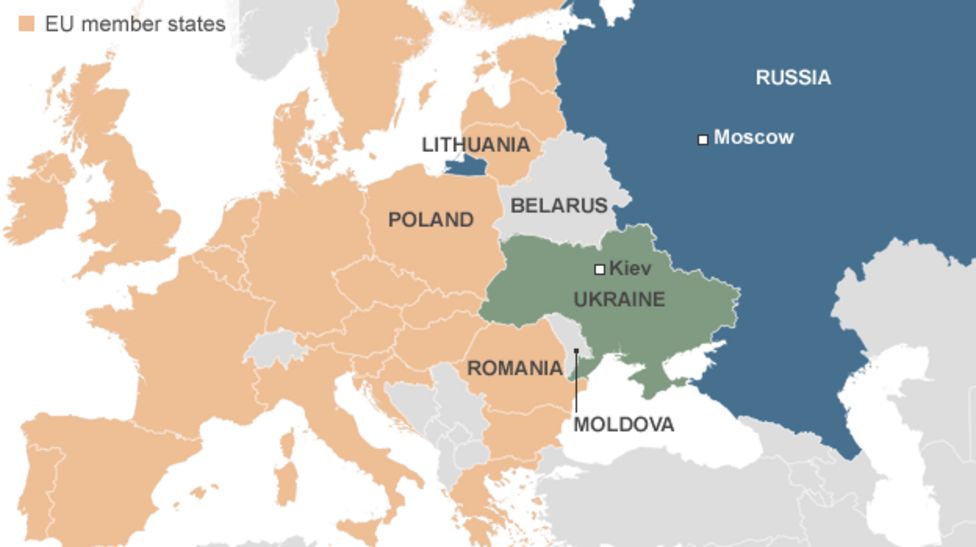
What’s the Possibility of War?
Ahead of the talks between Putin and Biden, the Russian leader clarified his call for new security guarantees.
Putin said Russia would seek “concrete agreements that would rule out any further eastward expansion of NATO and the deployment of weapons systems posing a threat to Russia.” Even if the United States provides such guarantees—which does not seem very probable given that such a move would be interpreted as a concession to Putin and a sign of weakness—it is not probable Washington would implement the deal.
U.S. officials already have declined to rule out dispatching U.S. forces to eastern Europe, although at this point it is highly uncertain if the U.S. troops could be deployed to Ukraine. Ukraine’s Defense Minister Oleksii Reznikov has called on the United States, Canada and the United Kingdom to dispatch their military personnel to the former Soviet republic, even though the eastern European nation is not part of NATO.
“Those troops should be stationed in places where Russia can see them,” Reznikov stressed. Meanwhile, Denis Pushilin, leader of the Russia-backed self-proclaimed Donetsk People’s Republic that declared independence from Ukraine in 2014, said he would request Russia’s assistance in case the situation in the region escalates.
Indeed, a potential deployment of NATO troops in Ukraine would prevent a Russian intervention, given Moscow would be unlikely to confront NATO troops. Russia’s policy makers are quite aware any incursion into Ukrainian territory would result in severe anti-Russia sanctions, which could potentially include actions against Russian oligarchs and energy producers, as well as disconnect Russia from the SWIFT international payment system used by banks around the world. On the other hand, given the United States has the upper hand vis-à-vis Moscow, it is entirely possible some sanctions will be imposed, even if Russia does not invade Ukraine. The West also can deploy troops to Ukraine to prevent what they would call a potential Russian invasion, and there is very little the Kremlin can do about it.
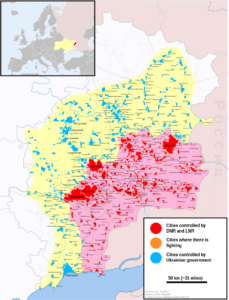
Hypothetically, Russia could recognize the self-proclaimed Donetsk People’s Republic and Lugansk People’s Republic, and build military bases on their territories, but such a move is unlikely to have an impact on Ukraine’s goal to restore sovereignty over the coal-rich region. From the legal perspective, the Donbass, as well as Crimea, is part of Ukraine, and no foreign actors would condemn Ukrainian attempts to return the regions under its jurisdiction. Still, unless its gets the green light from Washington, Kiev is unlikely to launch any large-scale military actions against Russia, or Russia-backed forces. Moscow, for its part, is expected to continue preserving the status quo. Supporters of the notion that Russia is keen on invading Ukraine fail to explain what the Kremlin’s motive for such an action would be.
Energy Deals
However, Moscow achieved its goals in 2014 when it incorporated Crimea, which has significant offshore gas and oil reserves into the Russian Federation. That year Russia tacitly supported the creation of the Donbass republics that reportedly have 34.4 billion tons of coal reserves. Since Moscow, through its proxies, already controls the Donbass coal production and export, capturing the other energy-poor regions of Ukraine would represent nothing but an additional cost for Russia.
Nonetheless, Western and Ukrainian media continue to spread rumors of an “imminent” Russian invasion. Ukrainian military officials claim Russia could start its campaign against the former Soviet republic in February—in the middle of winter when troops are up to their knees in snow. Meanwhile, Oleksiy Arestovych, the head of the Office of the Ukrainian President, recently suggested his country could “fire missiles at the Russian Federation, in case the Kremlin starts a full-scale war against Ukraine.”
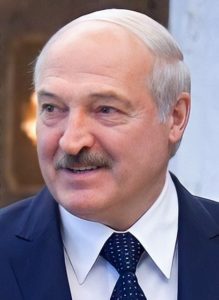 Belarusian President Alexander Lukashenko, on the other hand, openly said in case of a potential conflict between Russia and Ukraine, Minsk will support its ally, Moscow. At the same time, Belarus announced joint military exercises with Russia along its border with Ukraine. Plus, Lukashenko promised to visit Crimea soon, which would be Belarus’ de facto recognition of the Kremlin’s incorporation of Crimea into the Russian Federation.
Belarusian President Alexander Lukashenko, on the other hand, openly said in case of a potential conflict between Russia and Ukraine, Minsk will support its ally, Moscow. At the same time, Belarus announced joint military exercises with Russia along its border with Ukraine. Plus, Lukashenko promised to visit Crimea soon, which would be Belarus’ de facto recognition of the Kremlin’s incorporation of Crimea into the Russian Federation.
His visit, whenever it comes, undoubtedly will have a serious impact on relations between Belarus and Ukraine. Kiev fears Belarus could take part in what they perceive would be a Russian invasion of Ukraine, and the country’s authorities have taken Lukashenko’s threat very seriously. According to reports, citizens of Ukraine already started preparing to defend the Ukrainian capital against an invasion, whether it may come from Russia or Belarus.
One thing is for sure: Unless Kiev starts a massive military campaign in the Donbass, or engages in a serious provocation against Russia, the Kremlin is unlikely to start a war against Ukraine. And even if a war breaks out, Russia’s actions are expected to be very calculated, limited and carefully coordinated with its Western partners, as part of moves toward a “stable and more predictable relationship” between Moscow and Washington.
Nikola Mikovic is a Serbia-based contributor to CGTN, Global Comment, Byline Times, Informed Comment, and World Geostrategic Insights, among other publications. He is a geopolitical analyst for KJ Reports and Enquire.
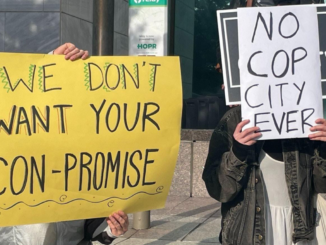
City of Atlanta and DeKalb County Announce ‘Agreement’ Amid Growing Opposition to Cop City
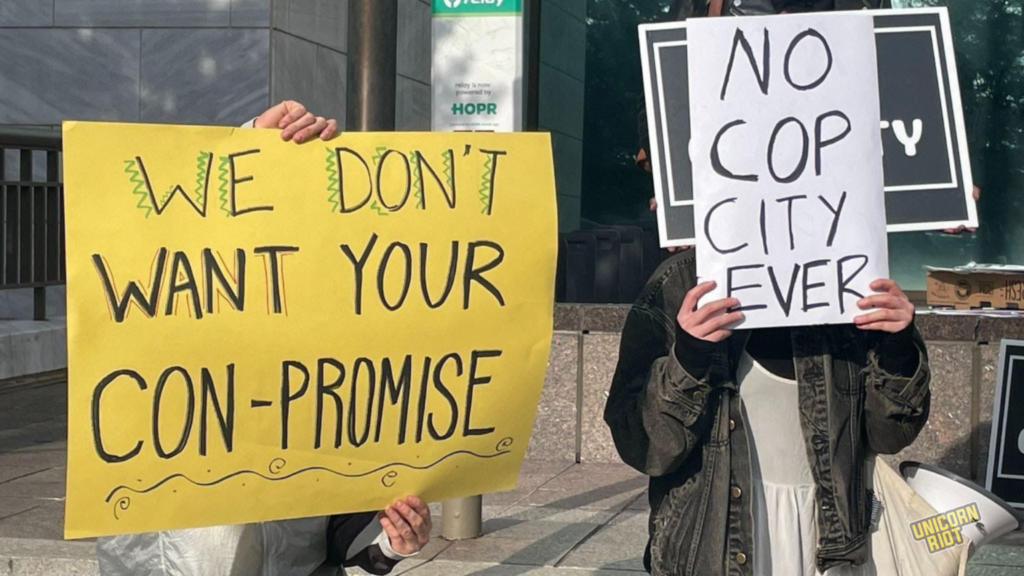
Editor’s Note: This article originally appeared in Unicorn Riot.
ATLANTA, United States—Atlanta Mayor Andre Dickens announced Tuesday that the City of Atlanta and DeKalb County have reached an agreement regarding permitting issues that had previously slowed their plans to build an elaborate 85-acre police training facility in the middle of a forest in unincorporated DeKalb County, southeast of Atlanta. The training center, nicknamed “Cop City,” has sparked massive opposition; violent police repression of the movement against the project recently led to SWAT officers shooting and killing a protester.
Dickens’ announcement varied little from the Atlanta Police Foundation and the City of Atlanta’s previously stated plans. However, apparently responding to criticism from environmental groups and community members, the mayor attempted to reframe the project as environmentally beneficial to the South River watershed and surrounding forest.
“I know there have been questions about the environmental impact of this project, which is a focus of this agreement we’re announcing today with DeKalb County,” said Dickens. “The 85-acre facility will be constructed on a set of parcels owned by the city of Atlanta that totals more than 380 acres. The rest of the land, which is roughly 300 acres, will continue to be green space available to the public.”
Dickens claimed that the area slated for destruction by the city contains only “invasive species, soft woods, weeds, asphalt and rubble.” But those who have been to the forest, including several Unicorn Riot contributors, know that the 85 acres slated for destruction contain an actual, thriving ecosystem.
The mayor has deemed this new plan a “compromise,” but those protesting outside the press conference say no compromise has been reached with them.
“The city has lied about the Cop City acreage before,” wrote some of the protestors in a statement released by the Atlanta Community Press Collective. According to the group, the 85 acres includes only the footprint of buildings, not the entirety of forested acreage that will be destroyed by the project.
“In August 2021, when Atlanta City Council delayed their vote on Cop City, the APF claimed a similar ‘compromise:’ instead of clearing the 381 acres they are leased by the City of Atlanta, the APF would reduce the footprint of buildings and impermeable surfaces to only 85 acres, while more of the land would be cleared and turned into turf fields, shooting ranges, horse stables labeled ‘green space.’”
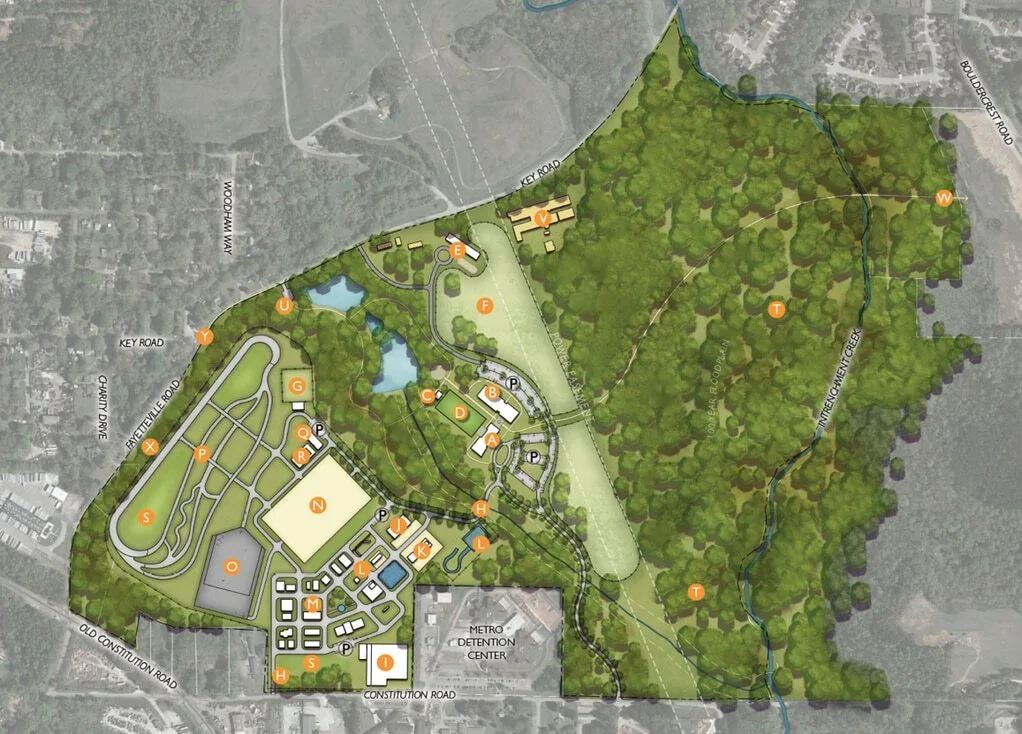
Jasmine Burnett, with Community Movement Builders, said that her group is not assuaged by promises of “green space” either.
“Our firm line is no cop city anywhere,” said Jasmine Burnett, Organizing Director at Community Movement Builders. “No destruction of the forest at all. I know, they’re trying to harp on the fact that it’s only 85 acres. And allegedly, the rest will be left for public use. But that’s 85 acres too much.”
“We are also calling for the charges to be dropped against all of the protesters who’ve been charged with any crimes, but especially the domestic terrorism charges,” said Burnett. “So yeah, ultimately, the fight to stop cop city continues beyond today, nothing has really changed except for the fact that they at the last minute made all of us come over here for a last minute press conference.”
Jaike Spottedwolf, who was also protesting outside City Hall during the press conference, echoed the concerns that the city continues to lie about the project. “We know how they operate,” they said. “We know that they’re going to get in there, start building and then take the whole thing down at that point, we won’t be able to fight anything.”
In the anonymous press release posted by the Atlanta Community Press Collective, the authors also pointed out that neither this current promise, nor past promises, have been legally binding. Those opposed to the project are concerned it could be nothing more than a ploy to distract opposition to the project.
“Nothing in the lease agreement was binding regarding this promise, and quickly the land disturbance permits shifted — nearly doubling to 171 acres,” the group wrote of the previous deal.
“Like all other points of ‘compromise,’ this has proved empty rhetoric to cover over the undemocratic railroading of this project on to un-represented, disenfranchised residents of Atlanta and Dekalb County. This is more backroom talk between powerful elites and their dark money contributors.”
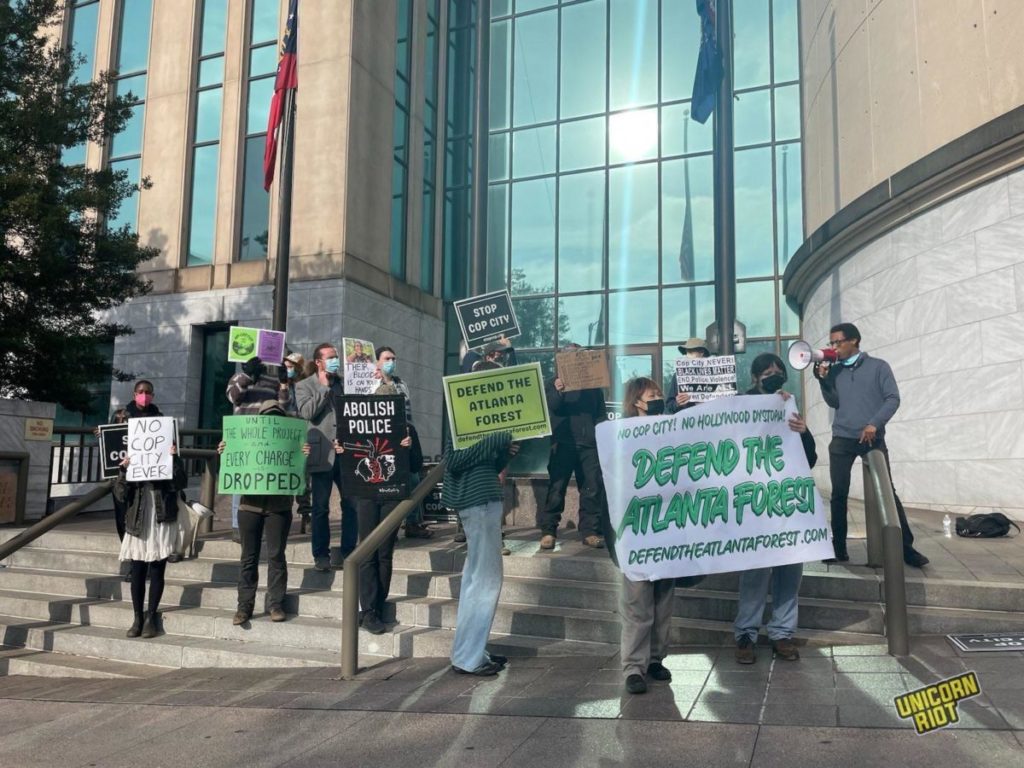
The announcement comes less than two weeks after police shot and killed forest defender Manuel “Tortuguita” Terán, claiming that Terán had shot an Georgia State Patrol trooper in the abdomen during a raid on the forest. Activist groups, however, have called that narrative into question, demanding the release of all information available on the incident to the family for an independent investigation. The trooper who killed Terán has not been named. Protest groups are demanding the release of his name.
During the press conference, neither the politicians nor the police chief mentioned Terán’s killing.
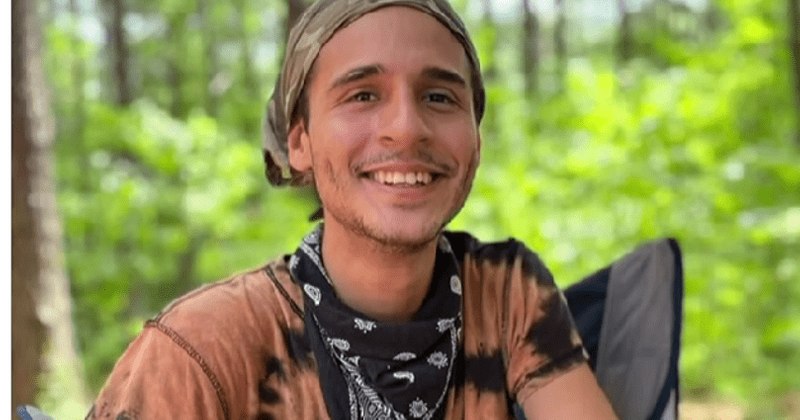
Recently, more than 1,300 climate justice groups have signed a statement calling for the immediate resignation of Mayor Dickens amidst growing controversy over the cop city project and Terán’s killing, according to the Atlanta Community Press Collective.
The ‘green space’ and eco-management aspects of the plan are not new innovations or concessions, but were presented by engineers in an October 26, 2021 meeting of the Community Stakeholder Advisory Committee (CSAC). (Recordings of CSAC meetings were first obtained and released by the Atlanta Community Press Collective).
In the October 2021 meeting, Lily Ponitz, a former environmental engineer serving on the committee as a concerned local resident, told the committee that areas slated for use as public parks include contamination that the Atlanta Police Foundation and the city of Atlanta instructed environmental contractors to ignore – allegations that were not challenged by either hired engineers on the call or the leaders and police officials on the committee. Ponitz was later unceremoniously kicked off the advisory committee due to her dissent regarding elements of the project.
Advisory Committee Chair Alison Clark, who was instrumental in removing Ponitz for her critical comments, is also President of the Boulder Walk Homeowner’s Association.
Here are comments from an exchange from October 21, 2021 meeting of the Atlanta Public Safety Training Center (APSTC) Community Stakeholder Advisory Committee (CSAC):
Bob Hughes [Project Manager working with Atlanta Police Foundation]: And I think it’s important to point out, because I know last time we there was some express about concern of making sure if there’s an environmental issue that needs to be cleaned up, that it’s addressed, that that this environmental study is not just inside the 85 acres that are the Police Foundation lease land, but we’re looking at everything outside of that so that, you know, if there’s something there, we want to know it.
And I think you all want to know, we all want to know that gets cleaned up.
Lily Ponitz: So that’s just where I actually don’t think what you’re saying is true. And I would like to see on a map exactly what areas you are defining in your environmental site assessment and what areas are in the plan for the site plan.
Alan Williams [Project Manager, Atlanta Police Foundation]: Well, our Phase One is in the public right now.
Lilz Ponitz: Yeah, I know. I’ve read it.
So what I’m saying is, there are areas in the site that you guys left out investigating and I understand APF [Atlanta Police Foundation] told you to do that or the city of Atlanta told you to do that. They’re your client. But what I’m trying to advocate for is a full assessment of the whole property to actually understand the contamination that has been put on the site by the City of Atlanta so that when you open up park spaces that have not been remediated we don’t have citizens who are coming into contact with contaminated soil and contaminated water like they already have been, honestly, with Intrenchment Creek. So that’s that’s just where, you know, really to prove what you’re doing, to prove that this is due diligence in the eyes of the concerned citizen. I’m asking for maps that show what areas did you leave out…?
